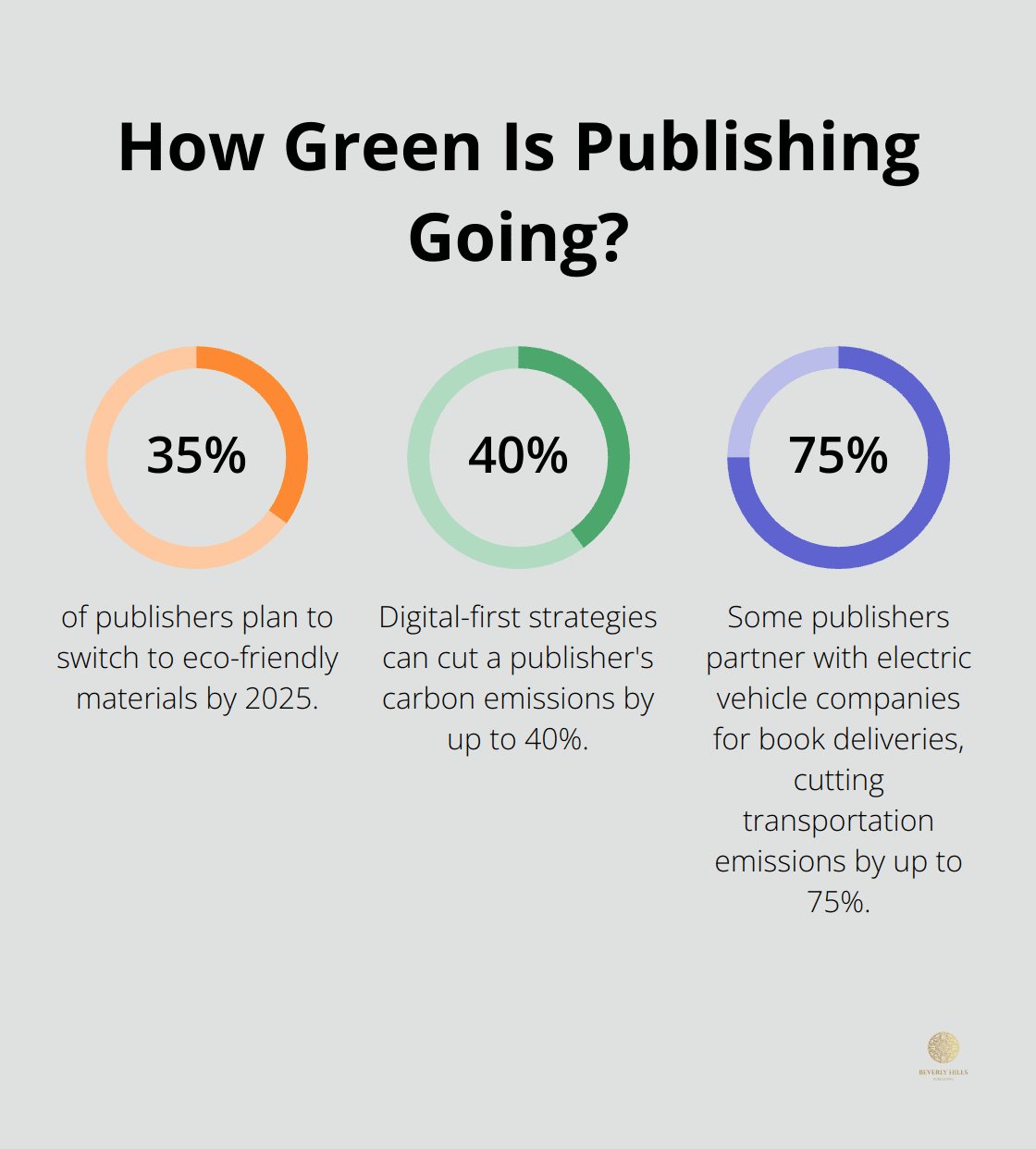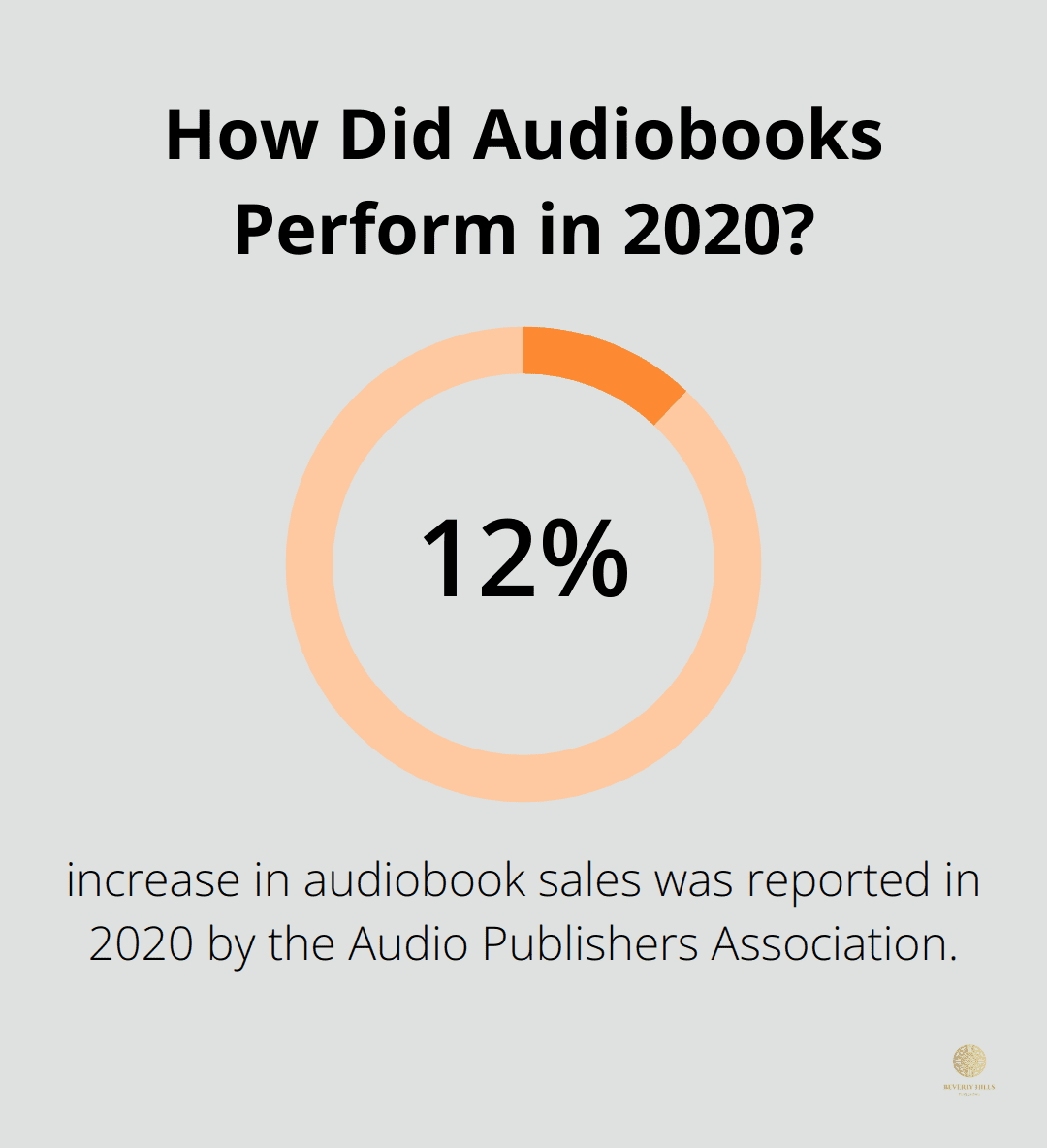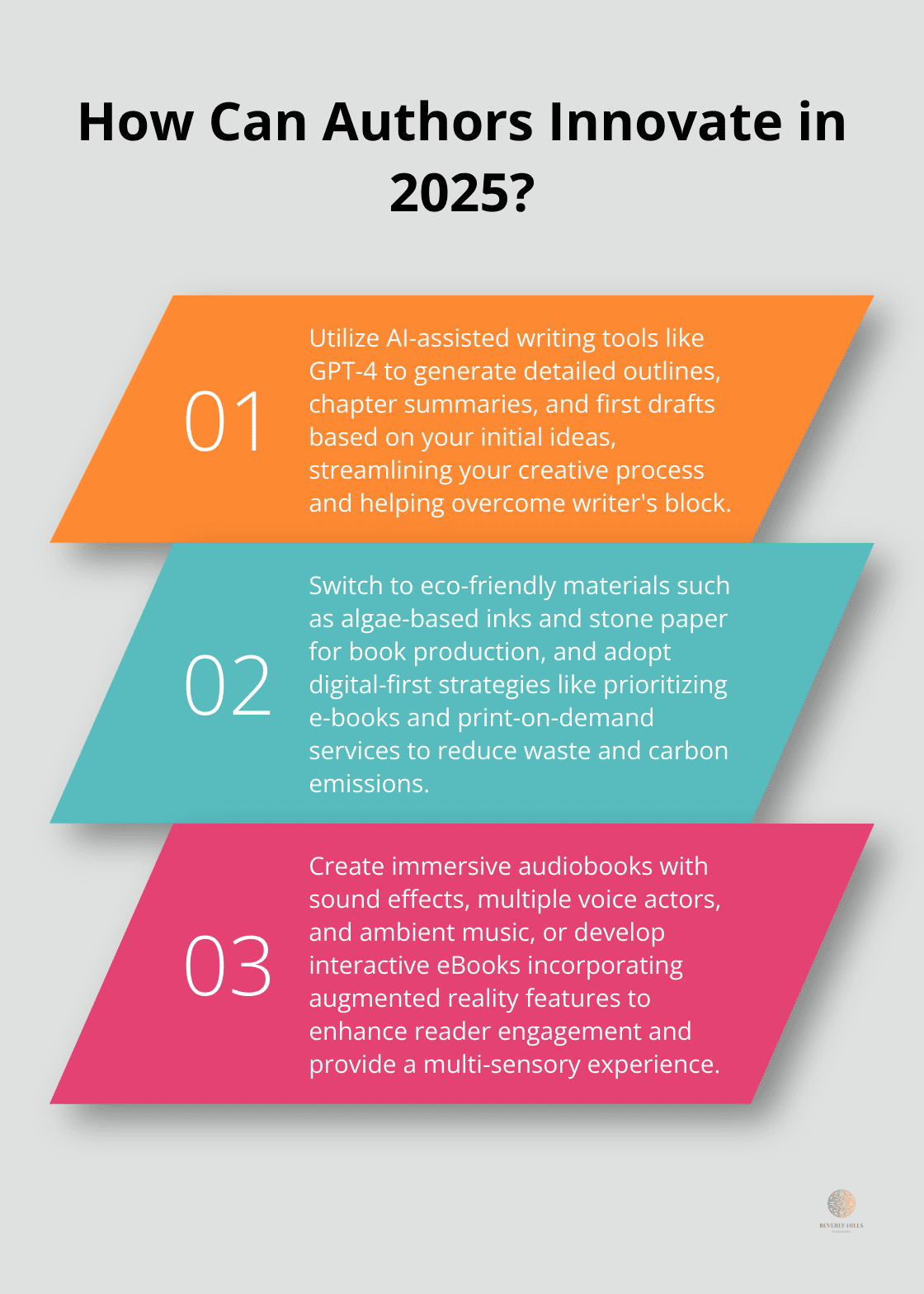The publishing landscape is set for a revolutionary shift in 2025. At Beverly Hills Publishing, we’re excited to explore the cutting-edge trends shaping the future of books.
From AI-assisted writing to sustainable practices and immersive audiobooks, the industry is evolving rapidly. Let’s dive into the book publishing trends of 2025 that will redefine how we create, distribute, and enjoy literature.
AI’s Impact on Book Creation in 2025
AI-Assisted Writing Tools
In 2025, AI reshapes how authors write, edit, and distribute books. AI-assisted writing tools streamline the creative process, helping authors overcome writer’s block, suggest plot twists, and generate character backstories. Tools like GPT-4 and its successors now provide detailed outlines, chapter summaries, and first drafts based on an author’s initial ideas. These AI assistants don’t replace human creativity; they amplify it. Authors use AI to explore new narrative possibilities and refine their ideas more quickly. The statistics speak volumes: 87% of AI-adopting companies already use AI for writing-related tasks, from error checking to content generation.
The AI Editing Revolution
AI has transformed the editing process. Advanced algorithms now detect not just grammar and spelling errors, but also inconsistencies in plot, character development, and writing style. Sudowrite, an AI book writer tailored specifically for fiction writers, can help with brainstorming, rewriting, and polishing drafts, significantly improving the editing process. These AI editors offer suggestions for improving pacing, dialogue, and overall narrative structure. The result? A more efficient and thorough editing process that helps authors polish their work to perfection.
Breaking Language Barriers with AI Translation
AI-driven translation services have made global book distribution more accessible than ever. Authors can now reach international markets with high-quality translations in a fraction of the time (and cost) of traditional methods. This technology opens up new revenue streams for authors and publishers alike, allowing books to cross linguistic boundaries with ease.
Balancing AI and Human Creativity
While AI offers exciting possibilities, maintaining the human touch in storytelling remains paramount. The most successful authors in 2025 skillfully blend AI assistance with their unique voice and creativity. As the industry moves forward, it must navigate the ethical considerations of AI use while harnessing its potential to create more diverse, engaging, and accessible literature.
The Future of AI in Publishing
As AI continues to evolve, we can expect even more innovative applications in the publishing world. From personalized book recommendations to AI-generated book covers, the possibilities seem endless. However, the core of great storytelling will always rely on human imagination and emotion.

The integration of AI in book creation marks just the beginning of the technological revolution in publishing. Next, we’ll explore how sustainability is reshaping the industry, creating a greener future for books and readers alike.
Green Publishing Revolution
Eco-Friendly Materials Transform Book Production
The publishing industry embraces innovative, eco-friendly materials for book production. Algae-based inks (biodegradable and non-toxic) gain popularity, reducing chemical waste while offering vibrant colors that rival traditional petroleum-based options. Stone paper, made from calcium carbonate, emerges as a game-changer. It resists water, lasts longer, and requires no trees or water in its production. A recent industry report indicates that 35% of publishers plan to switch to eco-friendly materials by 2025.
Digital-First Strategies Slash Carbon Footprint
Digital-first publishing becomes the new norm, not just a trend. This approach prioritizes e-books and print-on-demand services, which significantly reduces waste from unsold inventory. The Book Industry Environmental Council found that digital-first strategies can cut a publisher’s carbon emissions by up to 40%. Publishers also invest in energy-efficient data centers for e-book storage and distribution, further minimizing their environmental impact.
Carbon-Neutral Production Takes Center Stage
Leading publishers set ambitious carbon-neutral goals. They achieve this through a combination of renewable energy use, carbon offsetting, and innovative distribution methods. Some publishers partner with electric vehicle companies for book deliveries, cutting transportation emissions by up to 75%. Others invest in reforestation projects to offset their carbon footprint. The industry aims to achieve carbon neutrality without compromising on quality or accessibility.
Consumer Demand Drives Sustainable Practices
Sustainable publishing becomes not just an environmental imperative, but a key factor in consumer choice. Sustainable brands need to concentrate on price as well as environmental impact in order to change perceptions and buying habits. Publishers who prioritize sustainability will likely see increased customer loyalty and market share.
Innovation Reshapes Industry Landscape
The shift towards green publishing practices creates new opportunities for innovation and forces publishers to rethink their entire production and distribution models. As we move towards 2025, sustainability will define the success of publishing houses. This green revolution sets the stage for another exciting development in the industry: the evolution of audiobooks and interactive eBooks, which we’ll explore in the next section.

The Future of Reading Experience
Audiobooks: A Multi-Sensory Journey
Audiobooks have transformed into full-fledged audio productions. They now include sound effects, multiple voice actors, and ambient music. The Audio Publishers Association reports a 12% increase in audiobook sales in 2020 alone, with immersive audiobooks leading this growth.

Major publishers invest heavily in this format. Penguin Random House’s latest sci-fi release features a cast of 50 voice actors and a custom-composed soundtrack, creating an audio experience akin to a movie for the ears. This trend proves particularly popular in genres like fantasy and thriller, where atmospheric sounds enhance the storytelling significantly.
Interactive eBooks: Blending Reality and Fiction
eBooks have moved beyond static text on a screen. The latest interactive eBooks incorporate augmented reality (AR) features, allowing readers to bring stories to life in their own environment. A standout example is the children’s book “The Magical Garden,” which uses AR to let young readers see 3D characters from the story appear in their rooms through their tablet or smartphone cameras.
For non-fiction, this technology proves even more transformative. Cookbooks now offer AR demonstrations of cooking techniques, while travel guides can overlay information on real-world locations when viewed through a smartphone.
Subscription Models: The Netflix of Books
Subscription-based services for books have gained traction, offering readers unlimited access to vast libraries for a monthly fee. Kindle Unlimited, currently the market leader, boasts over 3 million titles. However, new players have entered the market with specialized offerings. For instance, Scribd has partnered with major publishers to offer a curated selection of bestsellers and new releases, directly challenging the traditional book-buying model.
These services change not only how we access books but also how authors receive compensation. Many now offer royalties based on pages read rather than outright purchases, incentivizing engaging content that keeps readers hooked.
The Evolving Landscape of Publishing
The lines between different forms of media continue to blur. Books become more interactive, audiobooks more cinematic, and the way we access content more flexible. For authors and publishers alike, this presents both challenges and opportunities. Those who adapt to these new formats and distribution models will find themselves well-positioned in the evolving landscape of publishing.
At Beverly Hills Publishing™, we remain committed to quality storytelling, even as the medium evolves. We constantly explore new ways to enhance the reading experience while maintaining the integrity of our authors’ work (a commitment that sets us apart in this rapidly changing industry).
Final Thoughts
The book publishing trends of 2025 will transform the industry. AI-assisted tools will revolutionize writing and editing processes, while eco-friendly materials and carbon-neutral practices will become standard. Audiobooks and interactive eBooks will redefine reader engagement, offering immersive experiences across multiple platforms.

Authors and publishers must adapt to these changes to succeed. Those who embrace AI tools, sustainable practices, and innovative formats will meet evolving reader preferences and market demands. The future of publishing will balance technological advancements with the timeless art of storytelling.
Beverly Hills Publishing leads in innovative publishing practices. We combine groundbreaking techniques with strategic branding and marketing to propel authors beyond traditional boundaries. Our commitment equips authors with tools to elevate their visibility, build strong brand identities, and emerge as industry leaders with a commanding media presence.















































































































































































































































